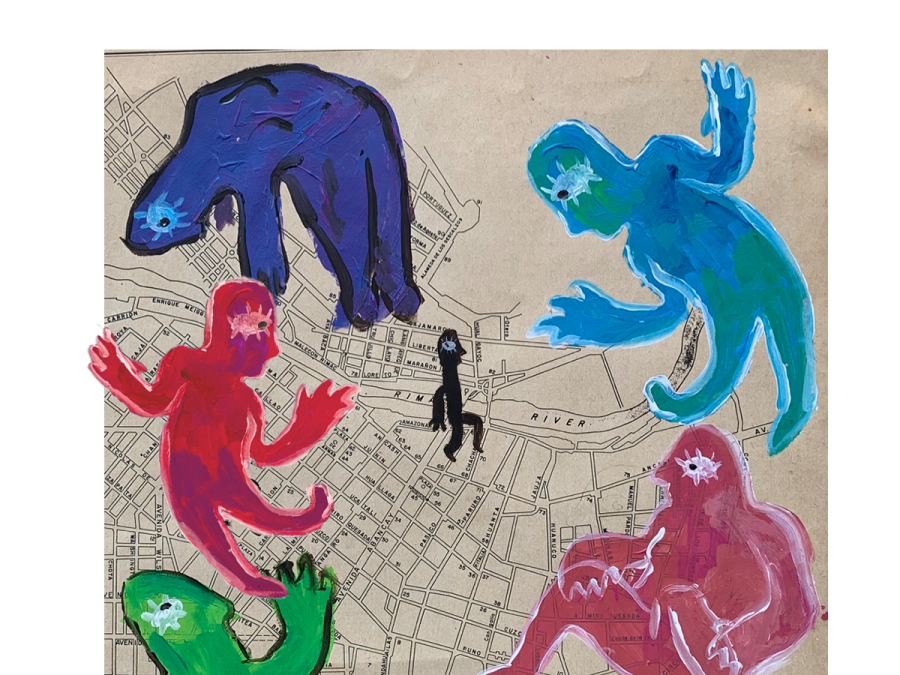In an age where we have access to so many people, we struggle to connect, staying apart even when we feel alone. Our social dynamic is one where we are constantly on our own, despite our need to be with others. Most of us walk to class alone, sit alone and eat alone. As we go through our days, we avoid the general population.
As technology becomes such an integral part of our lives, our phones have become a means of escape from our connection to those around us. This lack of human connection has caused a sharp increase in loneliness among students. Technology makes it easy to avoid people and compare ourselves to others. By making small connections to those around us, we can combat loneliness.
Journalism freshman Avery Austin said these communication barriers made her feel lonely in her first semester at UT.
“Everyone walks around with AirPods,” Austin said. “We announce to the world that we don’t want to be approached.”
It’s hard for first-year students to adjust to the dynamic of such a huge campus, and adding communication barriers make it that much harder. Someone with headphones on is unapproachable — we’re unlikely to talk to them. Do any of us talk to the person sitting next to us in the dining hall, the Speedway tabler or our bus driver? We’ve gotten so used to being able to avoid talking to the people around us.
Social media plays a big factor in our loneliness as well. Psychology sophomore Mackenzie Ulam said assumptions made from social media posts contribute to these feelings.
“You feel like everyone has other people that they make Instagram posts with and you see them getting lots of likes and you assume that they’re happy and they’re fine,” Ulam said.
However, social media doesn’t show us the depths of people. Social media shows how much fun people are having, where they are and the people that like the post. We forget that people aren’t defined by the places they go and the people they are with. It’s important to remind ourselves that loneliness is universal, even if we don’t talk about it.
David Springer, a professor teaching about the subject of happiness and director of RGK Center for Philanthropy and Community Service, said that personal connections can fend off the effects of loneliness.
“Nurturing intimate relationships and close friendships is one of the strongest predictors of our overall well-being and happiness, and can be a strong protective factor for college students,” Springer said.
Many things in our lives demand our attention: school, our phone, organizations and responsibilities. As important as it is to cultivate relationships, it’s often the last priority. But cultivating these important connections are anchors for our happiness and well-being. Having someone to confide and connect with can transform the college experience.
Recently, I’ve tried to talk to people around me. If I like something someone is wearing, I compliment them. If I’m even slightly interested in an organization that’s tabling, I ask questions. On the bus, I make sure to tell the bus driver to have a good day before getting off. Small communications have helped me feel more connected to the people around me.
As great as it is to listen to your music as you commute, walk or eat, small communications throughout the day can transform and combat loneliness. It’s as easy as talking to the person standing next to you in line — acknowledging other people is less brutal than ignoring them.
Lugo is an English freshman from Harlingen, TX.





















